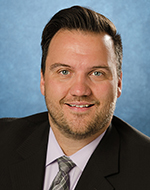Page Content

According to its ads, the Frontier Centre for Public Policy is western Canada’s most thought-provoking independent think tank. But, like its big brother the Fraser Institute, this right-wing think tank seems to do more advocacy than legitimate research.
The Frontier Centre’s education-related commentary often pushes ideas like back-to-basics curriculum, direct instruction and standardized testing — with the occasional piece on how teachers are being paid too much or how merit pay would improve the profession.
Needless to say, I tend to disagree with much that comes out of the Frontier Centre, but until recently its positions have at least been debatable. Lately though, its stuff has become more and more indefensible.
For example, a recent Frontier Centre evaluation on an Indigenous education conference takes on some of the most important learnings from the Truth and Reconciliation Commission’s work and describes them as “hooey.”
“Without the residential schools and with no major increase in the number of federal day schools,” writes author Mark DeWolf, “what would have happened to the 70 per cent of Indigenous children who didn’t have a day school nearby?”
“How would they have even learned the language of the white man, the language of finance, commerce and the law, the language of the Indian Affairs Department?”
DeWolf answers his rhetorical questions with an analogy, which given the residential school history can only be described as downright cruel: “In a century when the world was changing beyond recognition, those children would have been trapped as surely as any animal with its leg caught between steel jaws.”
The think tank even bought advertising in Saskatchewan to paint the intergenerational effects of residential schools as a myth. Fortunately, the broadcasters removed the ads after only one airing.
This is of interest, today, in Alberta, because the Frontier Centre’s president Peter Holle recently presented a keynote address at a small but influential conference in Calgary. Of note was a slide from his presentation subtitled, “Creating the best schools in the world,” which contained five points for education reform.
Point five promoted a back-to-basics curriculum. To do this, we would need to “remove political ideology from the school curriculum,” Holle said. Which political ideology, you ask? Well, the slide lists climate change, reconciliation and SOGI (sexual orientation and gender identity) as three examples.
Point four said Alberta should reform faculties of education, and point three said Alberta should “return standardized achievement testing for all grades,” as if that has ever existed.
While these points are plenty concerning, the most troubling pieces are points one and two.
Point one promoted a voucher system in which public dollars are provided to parents who then choose what schools to send their child and their money to. Point two promoted the abolishment of school boards and the appointment of individual principals to act as CEOs who would report to the parent advisory council of the school.
|
Taken together, this is the full-scale dismantling of the public education system. Every single public school (including Catholic and francophone schools) would essentially become a private, independent school. Public accountability and governance would be replaced with full parental control. And while we believe in the fundamental importance of parents as partners in education, they are not the only stakeholders of a public education system. All of this, of course, is being done in the name of “school choice” and “parental rights.” It’s hard to argue against school choice and parental rights, which is why those who wish to attack public education use those vague terms to cloak more destructive ideas. This policy package represents a clear and present danger to public education in Alberta.
|
It’s hard to argue against school choice and parental rights, which is why those who wish to attack public education use those vague terms to cloak more destructive ideas.
|
Normally, I might dismiss this presentation as being inconsequential, but the event carried weight. Other speakers included former Alberta finance and energy minister Ted Morton, and noted University of Calgary economist Jack Mintz. The audience also reportedly included three sitting MLAs.
Colleagues, with such a credible threat landing on our doorstep, defenders of public education must be vigilant. These debates will rage on in Alberta over the next few months and teachers, as the main protectors of Alberta’s public education system, need to engage in the political process and be vocal like never before. ❚
I welcome your comments — contact me at jonathan.teghtmeyer@ata.ab.ca.
